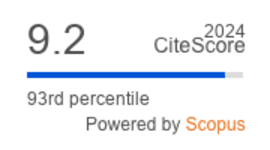Sexual Dysfunction in Asian Males with Type 2 Diabetes Mellitus
DOI:
https://doi.org/10.36877/pmmb.a0000259Abstract
In 2021, 537 million people were diagnosed with diabetes globally, where over 90% of these cases were type 2 diabetes mellitus (T2DM). In the top 10 countries for many adults with diabetes in 2021, Asia accounted for six spots in the rankings, with China (140.9 million), India (74.2 million), and Pakistan (33 million) sitting at the top three. In addition, the prevalence of diabetes in Asians are higher than in individuals from other regions. In Asia, diabetes affects a younger age group resulting in more people suffering from the complications of diabetes at an earlier stage in life. One of the most serious diabetes mellitus (DM) complications is sexual dysfunction (SD). In men with diabetes, several issues may occur in SD, such as erectile dysfunction (ED), ejaculatory disorders, orgasmic disorders, and reduced libido. There are many tools available to assess SDs. However, the Sexual Dysfunction in Asian Men with Diabetes (SAD-MEN) questionnaire is the only tool specific to Asian males with diabetes. SD develops because of the interaction between several biopsychosocial factors. There is insufficient data on the genetic, psychological, and social factors contributing to SDs in males with diabetes in Asia. Men with diabetes induced SDs experience a poor quality of life (QoL) due to the distress caused by SD. However, people from different cultural backgrounds and ethnicities perceive QoL differently. Therefore, future studies must be done on other predictors of life in a multiethnic population like Southeast Asians. There is still insufficient data on SDs in Asian males with diabetes. More studies are warranted to research different aspects of SDs, such as its prevalence in other parts of Asia, biopsychosocial factors contributing to SD, and the impact of SD on the quality of life of males with diabetes.
Downloads
Published
How to Cite
Issue
Section
License
Copyright (c) 2021 Vurmila Venggadasamy, Loon Shin Ho, Badariah Ahmad, Khalid Abdul Kadir

This work is licensed under a Creative Commons Attribution-NonCommercial 4.0 International License.
Author(s) shall retain the copyright of their work and grant the Journal/Publisher right for the first publication with the work simultaneously licensed under:
Creative Commons Attribution-NonCommercial 4.0 International (CC BY-NC 4.0). This license allows for the copying, distribution and transmission of the work, provided the correct attribution of the original creator is stated. Adaptation and remixing are also permitted.

This broad license intends to facilitate free access to, as well as the unrestricted reuse of, original works of all types for non-commercial purposes.
The author(s) permits HH Publisher to publish this article that has not been submitted elsewhere.



.png)

.jpg)
